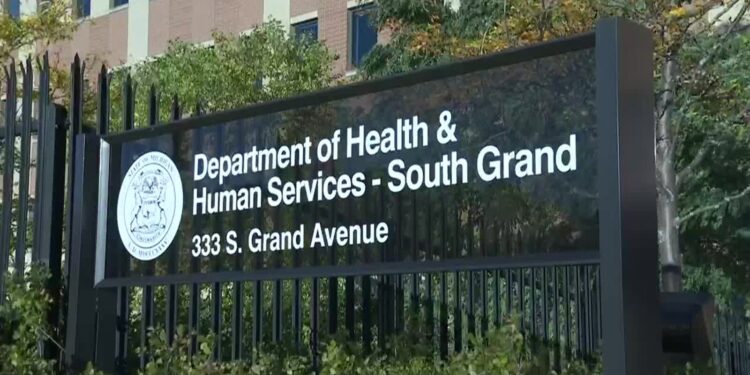LANSING, Mich. (WZMQ) – The Michigan Department of Health and Human Services (MDHHS) says it’s been directed by the U.S. Department of Agriculture to temporarily pause the issuance of November SNAP benefits, affecting roughly 1.4 million Michiganders who rely on the program for food assistance.
According to MDHHS, the USDA’s Food and Nutrition Service issued the instruction due to the ongoing federal government funding lapse, which may limit available funds for November’s Supplemental Nutrition Assistance Program payments nationwide.
“The impact of households losing SNAP benefits will be felt around the state,” said Elizabeth Hertel, MDHHS Director. “SNAP is more than a food assistance program; it’s a lifeline for many Michigan families. It helps families put nutritious food on the table, supports local farmers and grocers, and strengthens our communities and economy. We are strongly disappointed by the USDA’s decision to delay this assistance, and in Michigan, we will do what we can to help blunt this impact.”
SNAP, the nation’s largest food assistance program, provides benefits through electronic benefit transfer (EBT) cards that can be used at grocery stores, farmers’ markets, and other retailers. About 13% of Michigan households depend on SNAP, with 43% of recipients being families with children and 36% including older adults or people with disabilities.
The pause could deepen food insecurity for thousands of Michigan families already struggling with inflation and rising grocery costs. MDHHS says recipients should check the MI Bridges portal or contact their local MDHHS office for updates.
Those in need of immediate food assistance can also:
- Dial 2-1-1 or visit Michigan 2-1-1 for confidential referrals to food programs.
- Visit the Food Bank Council of Michigan to locate local food banks and other hunger relief efforts.
In fiscal year 2024, the average Michigan household received about $335 per month in SNAP benefits, or roughly $5.68 per person per day. More than 9,700 retailers across the state accept SNAP, generating millions in local economic activity each month.
MDHHS says it will continue to monitor the situation and communicate updates as federal funding negotiations continue in Washington.









